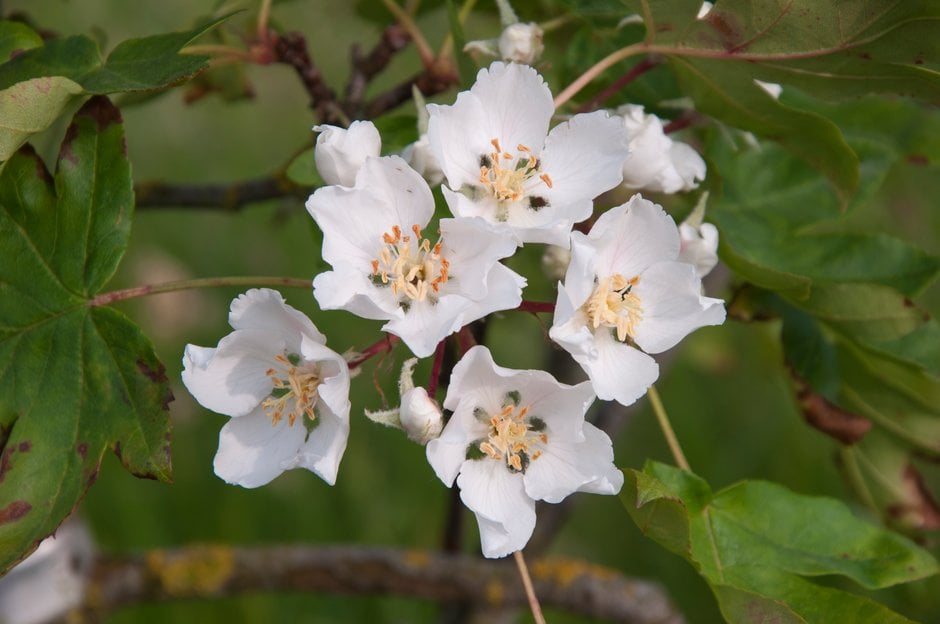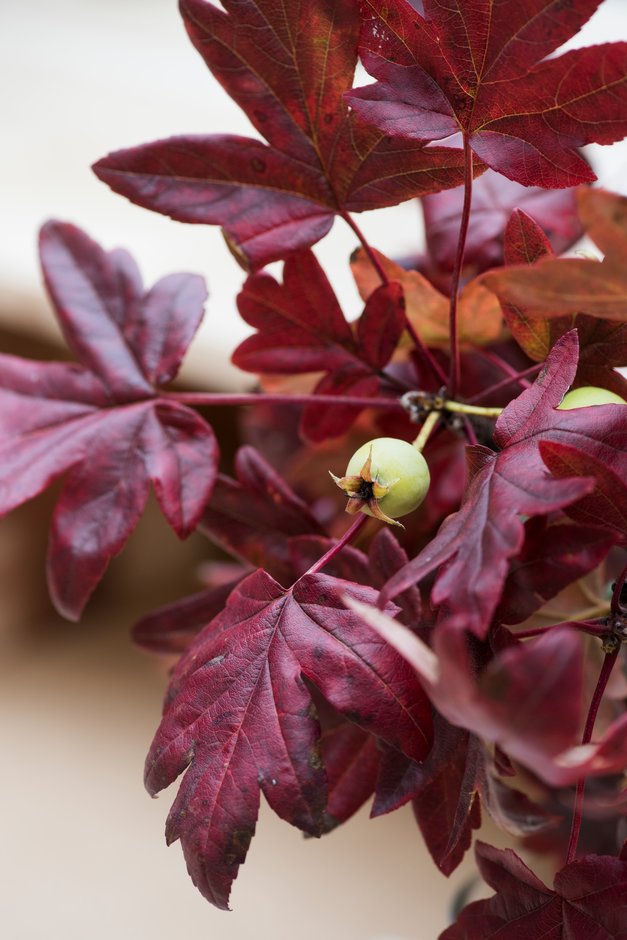Malus trilobata
Lebanese wild apple
A deciduous, conical to spreading tree up to 15m tall with downy young shoots. Maple-like leaves have 3 deep main lobes and each lobe may be further lobed and toothed; foliage emerges glossy green and turns bright red in autumn. Large, white flowers to 4cm across are borne in loose clusters and followed by greenish fruits that may be flushed red
Size
Ultimate height
Higher than 12 metresTime to ultimate height
20–50 yearsUltimate spread
4–8 metresGrowing conditions
Moisture
Moist but well–drainedpH
Acid, Alkaline, NeutralColour & scent
| Stem | Flower | Foliage | Fruit | |
| Spring | White | Green | ||
|---|---|---|---|---|
| Summer | Green | |||
| Autumn | Red | Green Red | ||
| Winter |
Position
- Full sun
- Partial shade
Aspect
West–facing or South–facing or North–facing or East–facing
Exposure
Exposed or Sheltered Hardiness
H6Botanical details
- Family
- Rosaceae
- Native to GB / Ireland
- No
- Foliage
- Deciduous
- Habit
- Spreading branched
- Potentially harmful
- Although generally edible when cooked, seeds contain toxins so these should be removed if you are considering eating the fruit, usually grown as an ornamental shrub. see the HTA guide to potentially harmful plants for further information and useful contact numbers
- Genus
Malus are small to medium-sized deciduous trees with showy flowers in spring and ornamental or edible fruit in autumn; some have good autumn foliage colour
- Name status
Correct
- Plant range
- E Mediterranean, N E Greece
How to grow
Cultivation
Grow in moderately fertile soil in a sunny position; will tolerate partial shade
Propagation
Propagate by sowing seed in a seedbed in autumn, by chip budding in late summer or grafting in midwinter
Suggested planting locations and garden types
- City and courtyard gardens
- Cottage and informal garden
- Wildlife gardens
- Flower borders and beds
Pruning
Pests
May be susceptible to aphids, including woolly aphid and rosy apple aphid, fruit tree red spider mite, codling moth and other caterpillars
Diseases
May be susceptible to apple canker, apple scab, blossom wilt, brown rot, fireblight, honey fungus and powdery mildews
Get involved
The Royal Horticultural Society is the UK’s leading gardening charity. We aim to enrich everyone’s life through plants, and make the UK a greener and more beautiful place.

